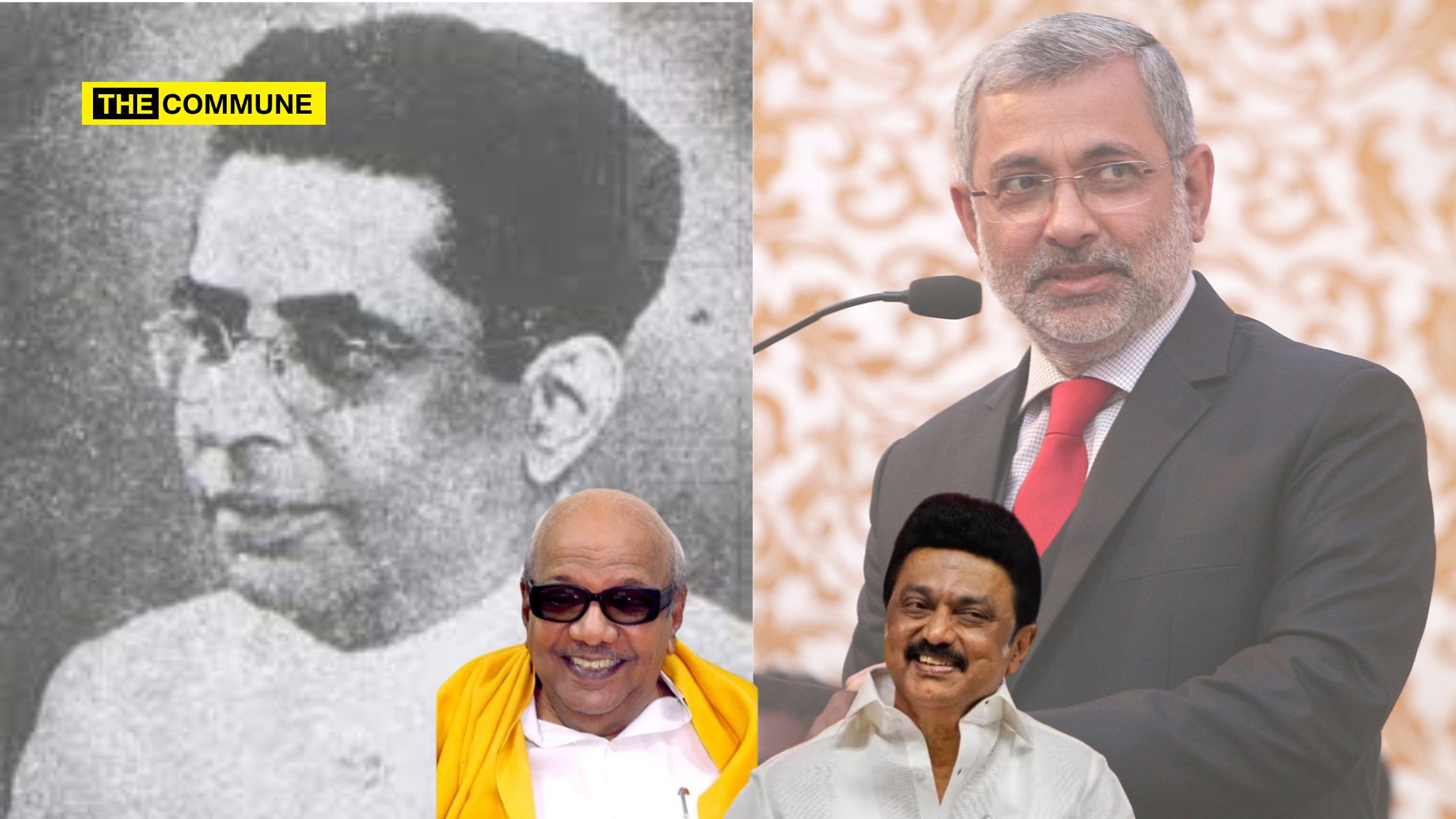
Some years ago, I was so engrossed in watching a movie titled “Theri” on Amazon Prime, my 3-year-old son’s favourite at that time, I suddenly had this déjà vu feeling, that this movie reminds me of another classic from 1990s – “Chatriyan” starring Vijayakanth. I then recollected that this observation i.e. Theri’s resemblance to Chatriyan was well documented in print and online media.
Today, when TN Chief Minister MK Stalin, made the bold announcement in the Assembly, about TN government’s decision to constitute a Committee headed by retired SC Judge Justice Kurian Joseph, to examine the state autonomy, and undertake a study on the relationship between Union Government and State Government, with the aim of safeguarding state autonomy, I was again reminded of the above feeling that I experienced while watching “Theri”. Have I not read something similar to this before?
That’s when I realized that it is another attempt at giving a modern twist to the now discarded recommendation of the Rajamannar Committee from 1970s. I am convinced that the recommendation of the new Kurian Joseph Committee in 2025/26 and the recommendations from the Rajamannar Committee in 1970s will be pretty much the same.
The Rajamannar Committee, officially known as the Centre-State Relations Inquiry Committee, was established in 1969 by the TN Government (under the DMK led by Chief Minister M. Karunanidhi) to examine centre-state relations in India and recommend measures to enhance state autonomy within the federal framework. It was headed by Dr. P.V. Rajamannar, former Chief Justice of the Madras HC, the committee submitted its report in 1971. Its recommendations aimed to address perceived centralization tendencies and promote a more balanced federal structure.
In this article, I have sought to give an overview of some of its key recommendation, with my observations on why they don’t fit the constitutional democracy India is. Some of its recommendations were so radical, that it was confined to its rightful home – the incinerator.
Establishment Of Inter-State Council
The committee recommended the formation of an Inter-State Council under Article 263 to facilitate consultation and coordination between the Centre and States. All major parliamentary bills or decisions affecting states should be referred to this council, and its opinions should be considered before decision-making.
This would only result in delays in legislation. For example, the 2016 GST Bill might have been delayed further if states like West Bengal opposed tax-sharing terms, slowing economic reforms. The council would have eventually become a political opposition platform, and nothing more. It’s structure also meant that larger states like UP might dominate, marginalizing smaller states like Goa.
Transfer Of Subjects To State List
The Committee recommended transfer of subjects like education, health, and social welfare to the State List, presumably to enhance State Autonomy in areas directly affecting local governance. This was to be undertaken by revising the 7th Schedule of the Constitution to transfer items from Union List and Concurrent List to the State List.
On surface, it looks like the right decision. However, it must be noted that States like Bihar, with weaker education systems, could fall further behind compared to Kerala, as seen in disparities in the recent Sarva Shiksha Abhiyan outcomes. Central Government’s control over health enabled India’s COVID-19 vaccination drive. State control might have led to uneven rollouts. Poorer States like Odisha lack funds to manage their health independently, as can be seen in their reliance on Central Schemes like Ayushman Bharat.
Residuary Powers Belong With Centre
One of the most radical recommendations was that residuary powers of legislation and taxation (not explicitly listed in the Union or State Lists) to be vested with the states, presumably to empower states to address local needs without excessive central interference. This would have resulted in legal fragmentation. For instance, States could pass conflicting laws on new issues like cryptocurrency. The most notable instance would have been the 1991 economic crisis. The central residual power enabled swift reforms. State control would have meant we would met the same fate as Venezuela or Greece. And I don’t want to step into the possibility of escalating militancy, since certain states might have used the residuary powers to fuel regional independence demands.
Abolition Of All India Services
Remember what Sardar Patel had stated about the Indian Civil Services? He had referred to them as the country’s Steel Frame. He believed that the civil servants were the executors of government policies, the backbone of governance, and a crucial pillar in India’s development. Rajamannar Committee proposed abolishing All India Services (IAS, IPS, IFS), arguing they undermine federalism and state autonomy by acting as agents of the Centre.
It would have led to administrative inefficiency, and political bias creeping in. States would have been infested with politicized bureaucracies, leading to lack of coordination between the State and the Centre. Classic example to highlight this is the 2008 Mumbai Attacks, which required IPS-Led NSG Co-ordination. State-only police services might delay such responses, risking lives.
And more importantly, the talent disparity across different states would mean serious governance gaps. How will a State like Arunachal Pradesh attract quality officers? Without them, as Sardar Patel had observed, there is no governance.
Abolition Of Planning Commission
The committee proposed disbanding the Planning Commission and replacing it with a statutory body of experts, with states having their own Planning Boards. This was supposedly to reduce central control over state development plans and allow states to tailor plans to their needs.
It would have led to fragmented development. Without a central planning, MGNREGA’s uniform rural job creation might vary. Poorer states like states like Chhattisgarh lack funds for independent boards, as seen in their reliance on central Smart City funds. And more importantly, it will lead to policy overlaps without any possibility for reasonable solutions in matters such as water-sharing agreements between States.
Mandatory Consultation With States
One of the more reasonable suggestions was that the states be mandatorily consulted on decisions affecting their interests, including legislative amendments by Parliament. This was done to ensure that States have a say in the national policies impacting them.
Even though on surface it seems perfectly fair, we need to understand that almost all security related laws and legislations, and national policies surrounding them will be understood to impact every state. Take for instance, the 2019 UAPA amendments for terrorism control. It might have been blocked, if States like Kerala or West Bengal had opposed them over petty partisan vote-bank politics, risking national security.
The Rajamannar Committee’s report, for all its radical recommendations, was completely ignored by the Central Government headed by the Congress, deeming them impractical and potentially divisive. Some of the recommendations, such as one against the misuse of Article 356 found judicial solutions at a later point in time, effectively, rendering the recommendation infructuous.
Given their radical nature, potential to disrupt national unity, and lack of practicality led to widespread criticism and non-implementation. It proposals were seen as prioritizing regional interests over national cohesion, making them a polarizing milestone in India’s constitutional history.
G Saimukundhan is a Chartered Accountant.
Subscribe to our channels on Telegram, WhatsApp, and Instagram and get the best stories of the day delivered to you personally.




